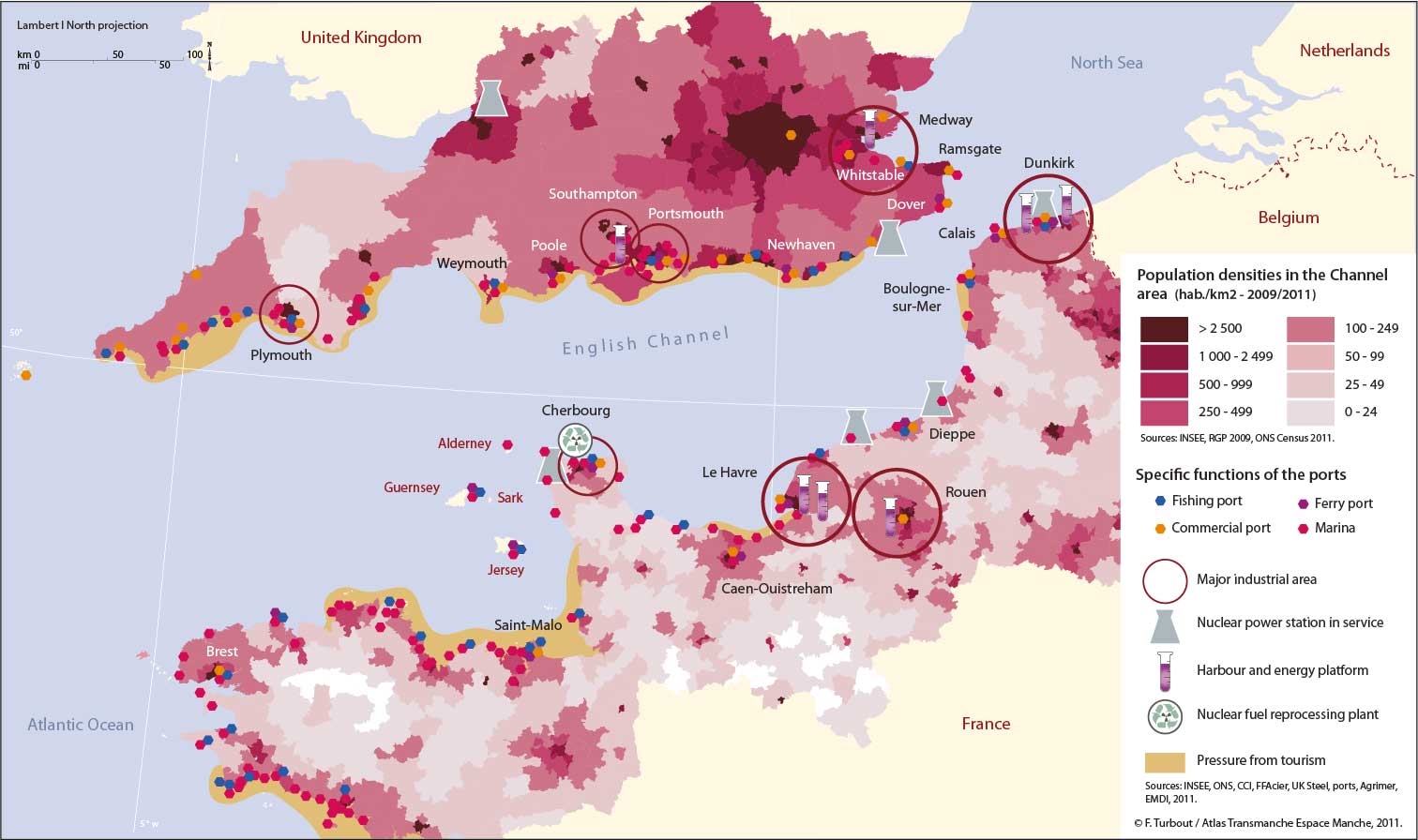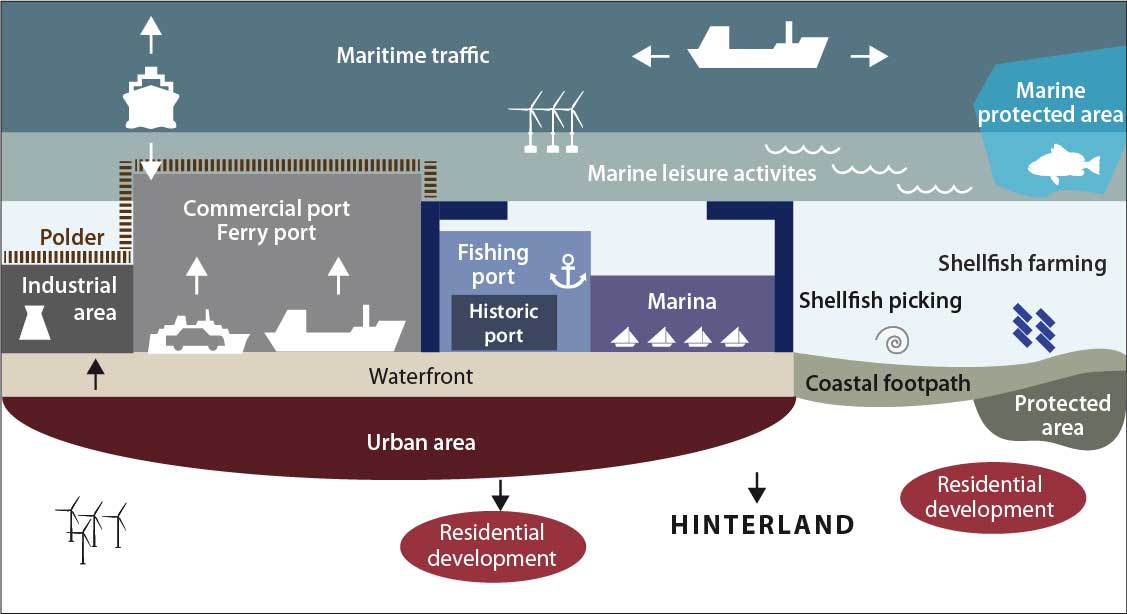

 Coastal Pressure
Coastal Pressure
Societies have always colonised coastal areas, spaces opening onto other worlds, fostering economic, social and cultural exchanges. The Channel represents such an intermediary linking between Britain and the continent.
Close to two major global cities, London and Paris, the region surrounding the Channel is an area of ancient settlement, today with a population over 46 million inhabitants – the equivalent of the population of Spain. Densities are high therefore, exceeding 300 inhabitants per square kilometre on average. However the contrast between a northern coast (the French side) and a southern coast (the English side) is evident through these densities: an average of 497 inhab./sq.kms on the British coast compared with 226 inhab./sq.kms on the French coast.
Adjoining land-uses and activities compete and and jostle for space, squeezed into this strip of a mere few kilometres wide overlooking one of the busiest seas in the world. Professional fishermen, merchant seamen, naval military personnal, yachting enthusiasts and tourists are every present. All sorts of activities are found along this coastline, including industry (metallurgy, nuclear, refineries, etc.), marine resources (fishponds, oyster farms, food processing industries), farming, shipbuilding and repair (arsenals, shipyards, etc.) as well as tourism and leisure (marinas, seaside resorts, casinos, etc.), all of which are of varying impact on an already restricted space. The continuing use of this land/sea interface poses a significant economic challenge – as well as an environmental one. Pressure remains high and requires management in order to protect these landscapes whilst maintaining employment activities, the two objectives and indeed, in conflict with each other.
In any new development, the need for all parties to work together so as facilitate its integration and gain social acceptance is paramount. Hence the obligation to adopt an integrated coastal zone management becomes central to the whole project.
top















